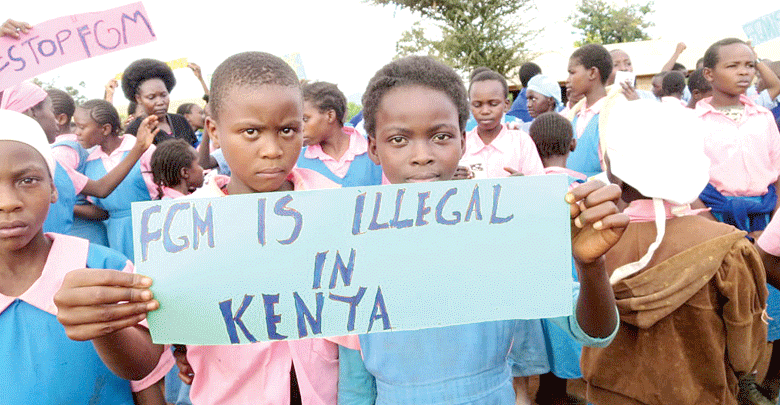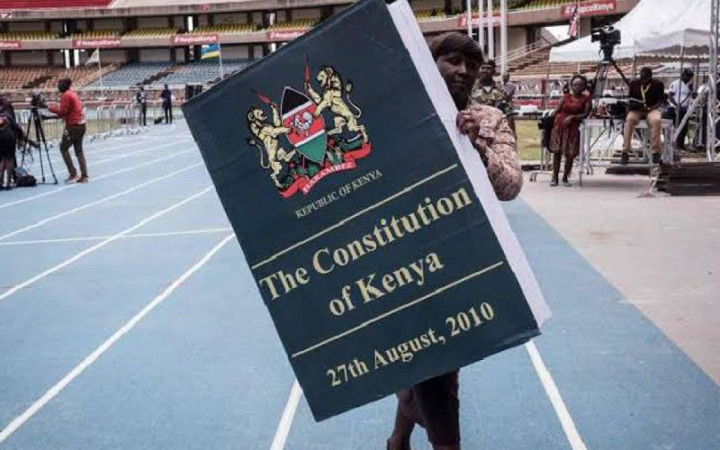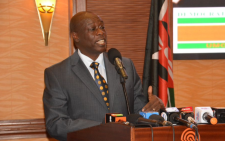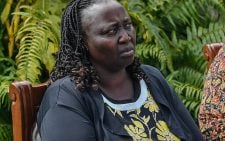NGOs unite to end FGM on the Kenya-Ethiopia border

The resolve by the government to eradicate female genital mutilation (FGM) seems to have gotten a boost after two non-governmental organisations launched an intense nine-month campaign against the vice in Isiolo and Marsabit counties.
Pastoralist Women for Health and Education (PWHE) has teamed up with Marsabit Women Advocacy Development Organization (MWADO) with the support from UNICEF and would be seeking to reach out stakeholders along the Kenya- Ethiopia border areas in the push for the abandonment of the outlawed practice.
Refugee communities
PWHE chief executive officer Ms Shoba Liban told a children Area Advisory Council’s meeting that brought different departments and actors from Isiolo and Marsabit at the Marsabit Gender and Social development department boardroom that there were plans to start a cross-border initiative against FGM.
Liban said champions like the youth through sporting activities like football would be used to deliver the message home which is also aimed at giving President Uhuru Kenyatta’s pledge to end the female cut in the country by next year a boost.
Liban who is also a director at the Anti-FGM Board added the approach was necessary because communities in Kenya sought refuge in Ethiopia whenever they wanted to subject young girls and women to the practice in order to escape arrest.
According to the organisation, the outlawed practice continues to be carried out in secret by communities on both sides of the two neighbouring countries.
Kenya has enacted laws and formulated policies besides heightened awareness creation campaigns by agencies like the anti-FGM board to eliminate the vice.
The government through the Ministry of Interior and Coordination of National Government has also taken the fight against the practice a notch higher by putting public administrators like chiefs and their assistants on rapid response initiatives (RRIs).
Ms Liban told KNA that it had been established that some members of the local communities crossed over to rural settlements in Ethiopia whenever they wanted to subject their girls and women to circumcision.
She held that ending the practice which is deep rooted culturally among local pastoralist communities required endearing clan elders and decision making organs in pressing for the abandonment of FGM.
She said that the initiative sought to work with law enforcement agencies from both countries along the border in finding a lasting solution to the problem by among other things creating awareness on the legal consequences as concerns practice.
Outlawed child marriages
MWADO chairperson Nuria Gollo noted that the war against the practice in the region got a shot in the arm in September last year after the Borana community’s 41st Gumi Gayo (community elders) assembly held in Ethiopia outlawed FGM, early child marriages and forced marriages practices by the community on both sides.
She said the project would also seek to ensure that both girls and boys were accorded equal opportunities to education adding that many school aged children were still out of class.
County Commissioner Paul Rotich underlined the need to enlist the support of clan elders and chief decision makers in the society in order to make the fight effective.
In remarks made by ACC1 in his office Festus Chepkwony, the CC termed the intervention as timely adding that educating the communities on the dangers of FGM and reproductive health rights in the marked out areas was important. —KNA









